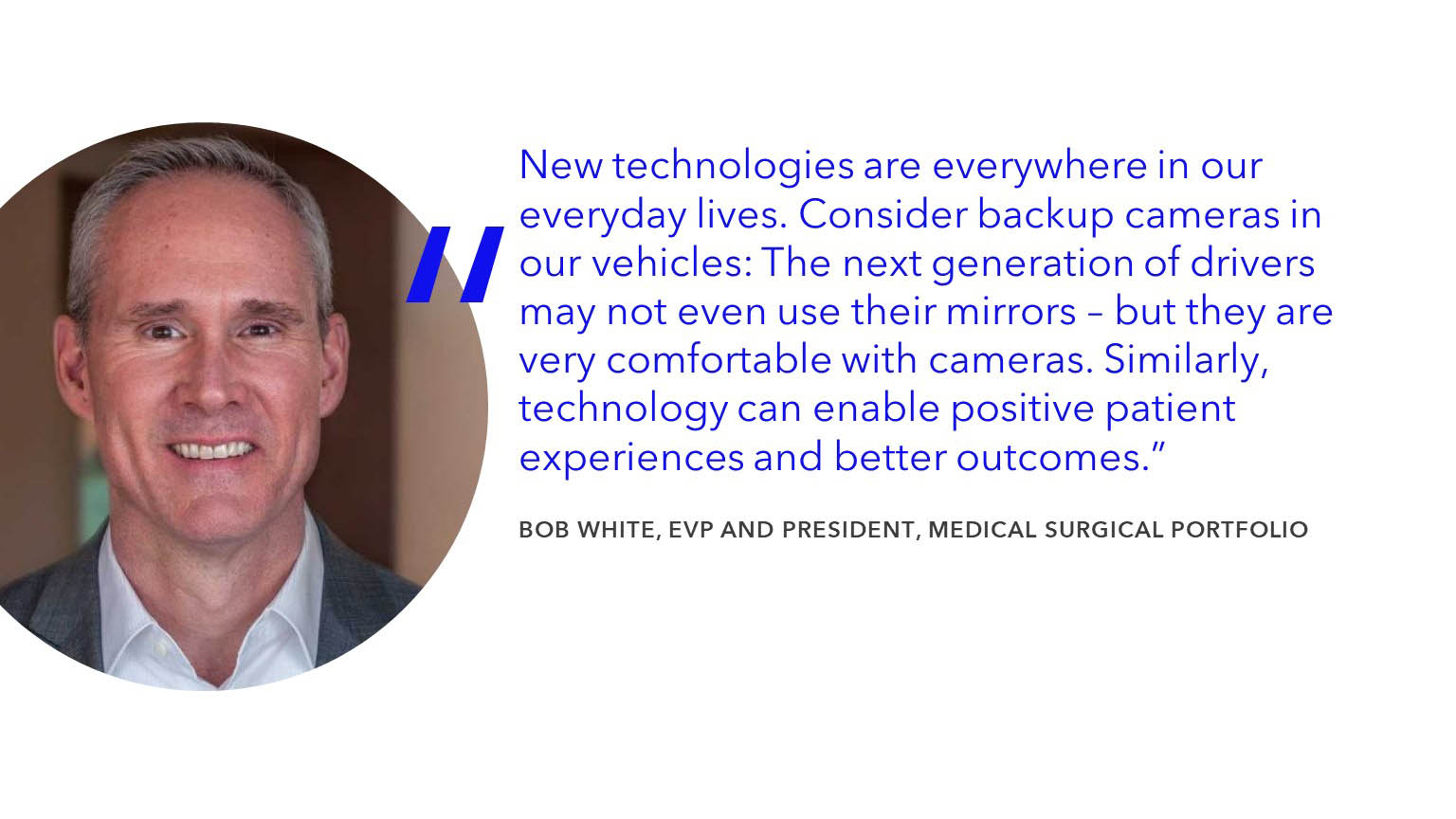5 ways artificial intelligence is transforming healthcare
AI is revolutionizing healthcare technology. And it’s just getting started.
For some, the idea of artificial intelligence woven into healthcare brings images of technology, robots, and machines. While that may be true, when put to work AI can help foster healthcare systems that help enhance the diagnosis and treatment of complex and challenging conditions. How? One way is by streamlining administrative tasks that eat up physicians’ time, allowing them to spend more time where they’re needed most — with you.
AI is positioned to revolutionize healthcare technology to strengthen, lengthen, and save lives. Here are five ways it’s already impacting healthcare:
AI can be a powerful tool in the assessment and treatment of comorbidities, such as diabetes and high blood pressure. By collecting and learning from a massive amount of patient data, AI can help detect patterns — and thus inform earlier diagnosis — and impact a person’s condition and quality of life.
- AI can help detect patterns and inform earlier diagnoses.
AI can be a powerful tool in the assessment and treatment of comorbidities, such as diabetes and high blood pressure. By collecting and learning from a massive amount of patient data, AI can help detect patterns — and thus inform earlier diagnosis — and impact a person’s condition and quality of life.

- The burnout rate among physicians jumped 5%1 last year alone. AI is helping to relieve their burdens at work.
The pandemic placed extra strains on physicians and more than ever, the pressures of work are leaving doctors physically and mentally exhausted. Up to 70%2 of a physician’s time can be spent on routine, administrative tasks. At its best, AI can free them up so more time is spent where they are needed most — with patients, delivering care — and nonclinical tasks, such as administrative work, are automated.
- Surgeons worldwide can learn from one another with the help of AI to reduce variability and share best practices.
Technology can truly democratize training around the world, including in underserved markets — which is both a vital need and a powerful way for us to fulfill the Medtronic Mission. When AI is used to connect information seamlessly across silos via a robust digital ecosystem, clinicians can personalize care so that hyper-individualized diagnosis and treatment are the standard.
AI helps bring experts together, creating a bank of annotated surgical videos uploaded to the cloud so they can learn from one another, which could help reduce variability in procedures and improve patient outcomes.
- It can help improve patient outcomes.
The detection of colon cancer is a good example — it’s the second deadliest cancer worldwide, but it’s highly treatable if detected early. Our intelligent endoscopy module scans thousands of images during a colonoscopy to alert physicians of hard-to-spot, potentially precancerous lesions that may not be visible to the naked eye. Ninety-six percent3 of clinicians agree that seamless access to critical medical data through AI and effective treatment plans, can save lives.
- We’re on the cusp of a fundamental shift in healthcare technology and AI is helping to shape it.
AI used to support healthcare; now it’s transforming it. Healthcare technology like AI and robotic-assisted surgery can shape the future of care — not just tech for the sake of tech, but to improve experiences and outcomes for clinicians and patients, whoever they are and wherever they live. This shift can demonstrate the extraordinary power of healthcare technology to alleviate pain, restore health, and extend life.
When technology is seamlessly integrated into healthcare systems, the transformation can bring life-changing benefits to patients and clinicians alike.
L001-01302023
Related content



